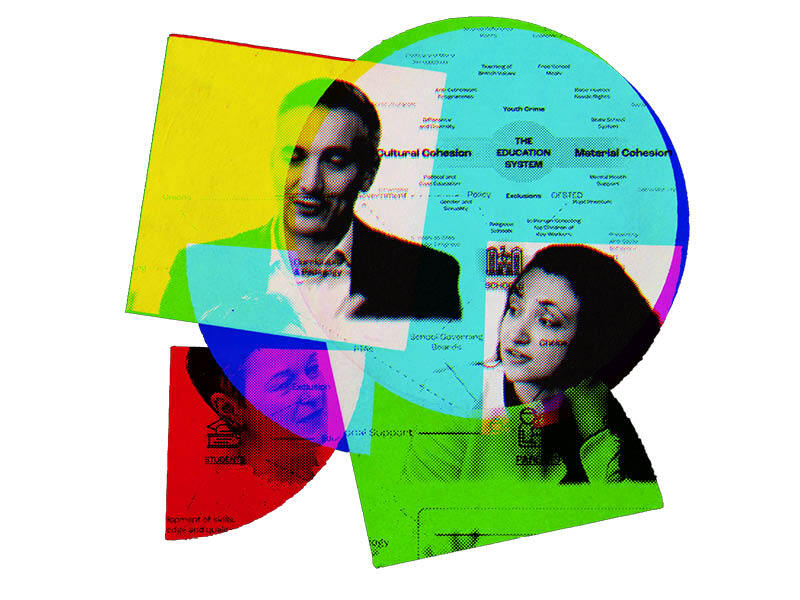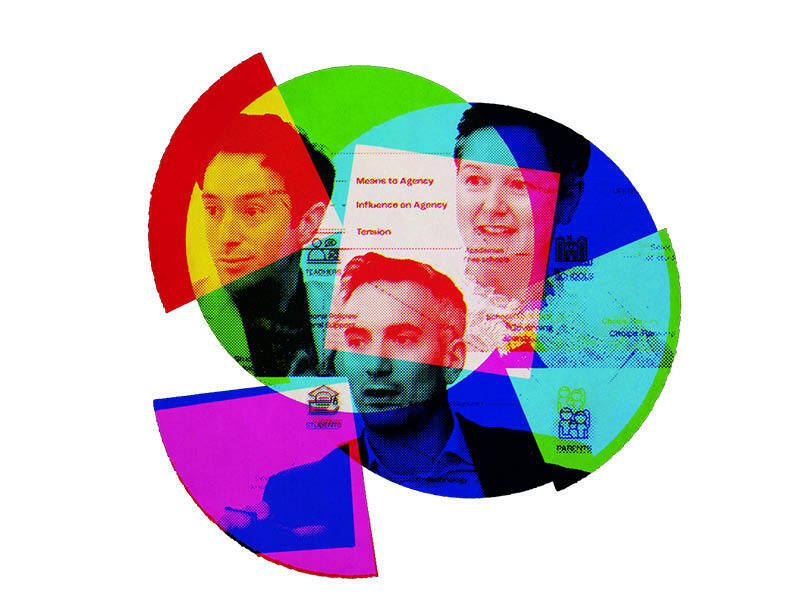How to disagree better about education
Education debates in the UK today are dominated by binary and divisive framings that crowd out the true variety of perspectives and philosophies in play.
We worked with Future Narratives Lab to map out and analyse narratives around education, interviewing national and international experts, culminating in the publication of the ‘How to Disagree Better about Education’ report.

Tuning out the noise...
Divisive narratives in education capture the most attention. They emphasise difference, focussing on the most tendentious areas of controversy and distracting attention from areas where novel approaches might be found.
By interviewing a range of figures with deep knowledge of the relevant UK and international context on how they see the contemporary education system, collecting their views and their perspectives on opposing ones, and then analysing and mapping the underlying logics, values and interrelations between them, we gained a richer and more accurate picture of what we actually think about education today, and where we truly differ. Interviewees included:
- Mary Bousted, General Secretary of the National Education Union (NEU)
- Andreas Schleicher, Director for Education and Skills, Special Advisor on Education Policy to the Secretary-General, Organisation for Economic Co-operation and Development (OECD)
- Samantha Twiselton, Director of Sheffield Institute of Education, and Advisory Panellist of Sheffield Hallam University and the Department for Education (DfE)
Head to the Future Narratives Lab website and complete the form to download the report.
Key highlights and findings
Starting with an exploration of the different fundamental perspectives on the purposes of education, the report then goes on to focus on three main topics: the allocation of agency in education, examination and equality among students, and contested views around cohesion.
Perspectives on Education
In a divided climate, we were particularly keen to make sure we included interviews with individuals from as wide a variety of perspectives as possible and sought out interviewees from across the spectrum.
One of our early findings was that these perspectives were not straightforwardly mapped onto traditional political spectrums or ideological definitions – instead we observed four different broad overlapping groups, each that could be defined by a primary way of thinking about the purpose of education.

Allocation of Agency
Two of the most common subjects of passionate debate in education have been the appropriate level of student discipline and ideas around ‘free schools’. Another way to frame such debates is to see them — and the viewpoints at play within them — as fundamentally about agency: who should have it, who needs more, who has too much, and what we should do to correct any perceived imbalance.
Viewed this way, it allows for a useful interface between seemingly distant conversations — and the comparison and contrast within particular viewpoints of where agency is valued and emphasised — and where it is ignored.

Examination and Equality
There is the basic idea that one of the primary purposes of education should be to allow young people to fulfil their true potential, and in particular to help them to escape the shackles that their background may have given them, whether those of bias, culture, disadvantage or class. On this basic point of purpose, there is near universal agreement.
Where divergence starts is on what the main barriers are to such escape, and thus what should be prioritised in seeking to overcome them. The chart on the left illustrates roughly how these two views might be understood.

Cohesion Contested
Our third area seeks to uncover beliefs around another area of expectation related to education’s contribution to our wider society — what role does it have to play in tying that society together?
In this area, we found two perspectives that again are often misconstrued (and presented) as being a simple political dichotomy, but once considered in more depth can be seen as concerns that animate people across a range of different political perspectives and values. Again, the artificial way in which these are divided excludes an important, even pivotal area of consensus, which if surfaced could play a crucial role as a foundation for more imaginative dialogue and debate.

Launch event
The report launch on 8th of June 2023 included a panel discussion with Luke Tryl, UK Director of More in Common; Julie McCulloch, Director of Policy at ASCL; Sarah Stein Lubrano, Head of Research at Future Narratives Lab; Loic Menzies from Sheffield Institute of Education and Jesus College Cambridge; and Helen Amass from Tes Magazine who chaired the event.
See clips from the discussion below. The full audio recording can be accessed here.
Blog and updates
A series of articles based on the ‘How to Disagree Better About Education’ Report have been published via our research arm, Fully Human.
Check out the first two of these:




